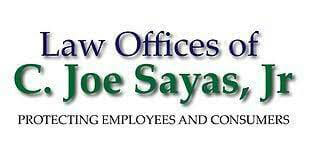Mocking employee’s physical disability may be harassment

Augustine Caldera worked as a correctional officer at the California Department of Corrections and Rehabilitation (CDCR) for 20 years. Caldera, who stutters when he speaks, was mocked or mimicked at least a dozen times over a period of about two years. A supervisor participated in the mocking in a mean-spirited manner and in front of others.
On one occasion, the supervisor even mimicked Caldera’s stuttering over the prison’s radio system, which could be heard by many other employees. The harassing conduct was part of the culture at the prison. Caldera filed an internal EEO complaint against the supervisor, but the latter was reassigned to the same area where Caldera was working. The supervisor continued to mock Caldera, including cursing at him with a mocking stutter.
Caldera sued the CDCR for disability harassment, failure to prevent harassment, and related claims under California law. The case eventually went to trial. A jury found in Caldera’s favor, finding among other things that the harassment was both severe and pervasive. The jury awarded Caldera $500,000 in emotional distress damages. The trial court ruled the damage award to be excessive and granted the employer a new trial. The parties appealed.
The employer argued that there was insufficient evidence that the harassment was either severe or pervasive. Caldera argued that the trial court failed to timely provide a reason for granting a new trial.
California law defines disability (whether mental or physical) as any disease, disorder, condition, cosmetic disfigurement, anatomical loss, mental retardation, organic brain syndrome, emotional or mental illness, or specific learning disabilities, which limits a major life activity. When a condition limits a major life activity, it means that the achievement of the major life activity is difficult. Working at a job is considered a major life activity.
California law prohibits harassment and discrimination based on disability or medical condition. In California, unlawful workplace harassment occurs when a person directs negative, inappropriate, or unwanted conduct at a worker based on certain protected characteristics, in this case, the employee’s disability or medical condition.
To prevail on a harassment claim, the employee must show that the conduct created a hostile work environment. A hostile work environment is one in which harassment occurs that is severe, frequent, or both. This means that there was a pattern of harassment of a repeated, routine, or a generalized nature. A few annoying or mildly offensive comments are usually not enough. However, a single incident may be considered harassment if it is extremely severe.
Unlawful harassment in the workplace can take many forms, including: inappropriate jokes, derogatory comments, or innuendo; physical harassment, like unwanted touching or hitting; verbal threats or implied threats; visual harassment, such as photos, posters or signs.
Given the facts in Caldera’s case, the appellate court ruled that the harassment was both “severe” and “pervasive.” The appellate court also affirmed the verdict that the employer failed to prevent harassment. It held that even though CDCR conducted training, the supervisor’s harassment persisted after the training, such that a jury could reasonably conclude that CDCR failed to take “all reasonable steps” to prevent harassment.
The court noted that the law does not exhibit “zero tolerance” for offensive words or conduct. Rather, the law requires the employee show that the harassment was severe or pervasive, which the employee has shown.
The Law Offices of C. Joe Sayas, Jr. welcomes inquiries about this topic. All inquiries are confidential and at no-cost. You can contact the office at (818) 291-0088 or visit www.joesayaslaw.comor our Facebook page Joe Sayas Law. [C. Joe Sayas, Jr., Esq. is an experienced trial attorney who has successfully recovered wages and other monetary damages for thousands of employees and consumers. He was named Top Labor & Employment Attorney in California by the Daily Journal, consistently selected as Super Lawyer by the Los Angeles Magazine, and is the recipient of PABA’s Community Champion Award.]

